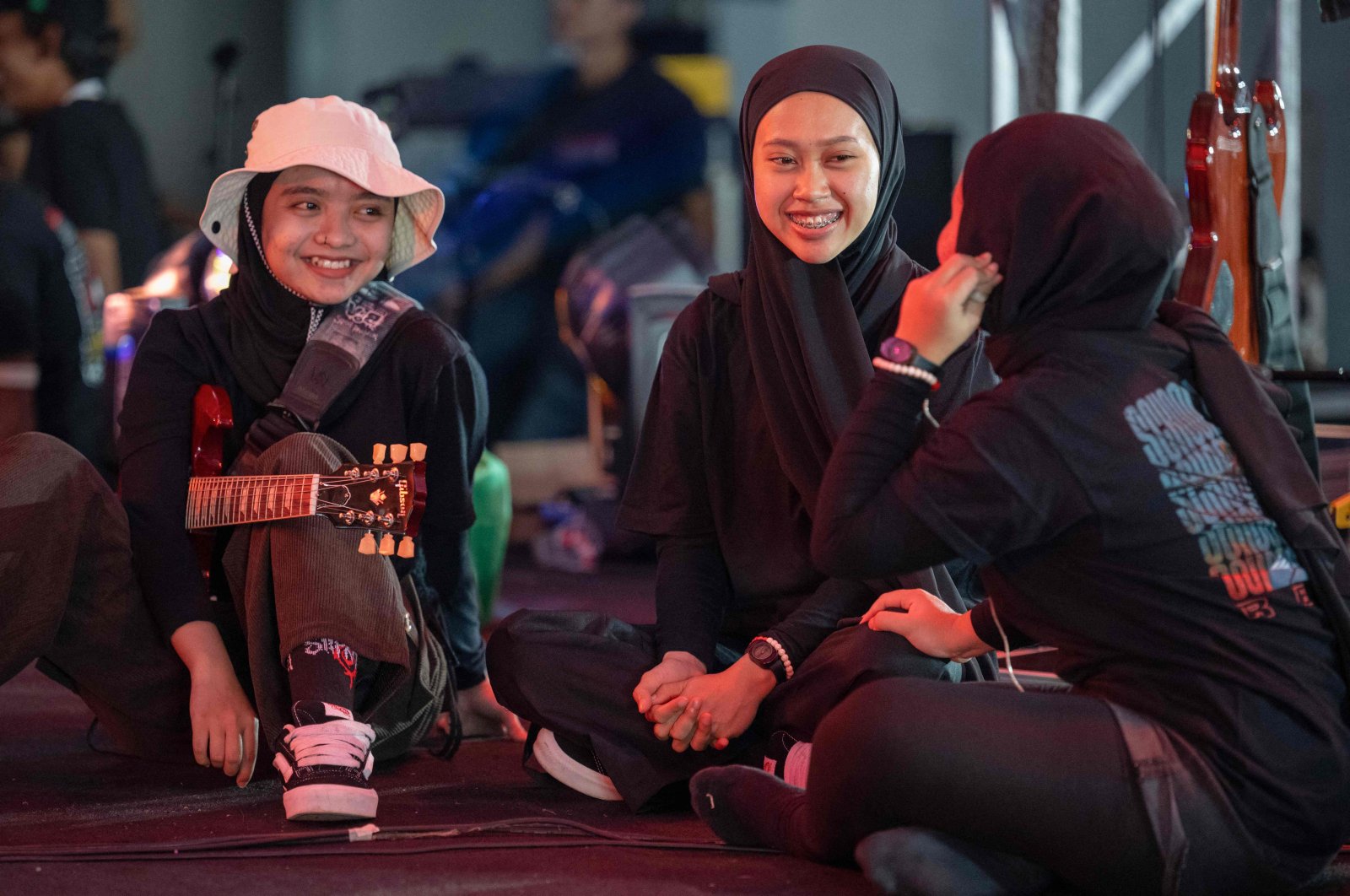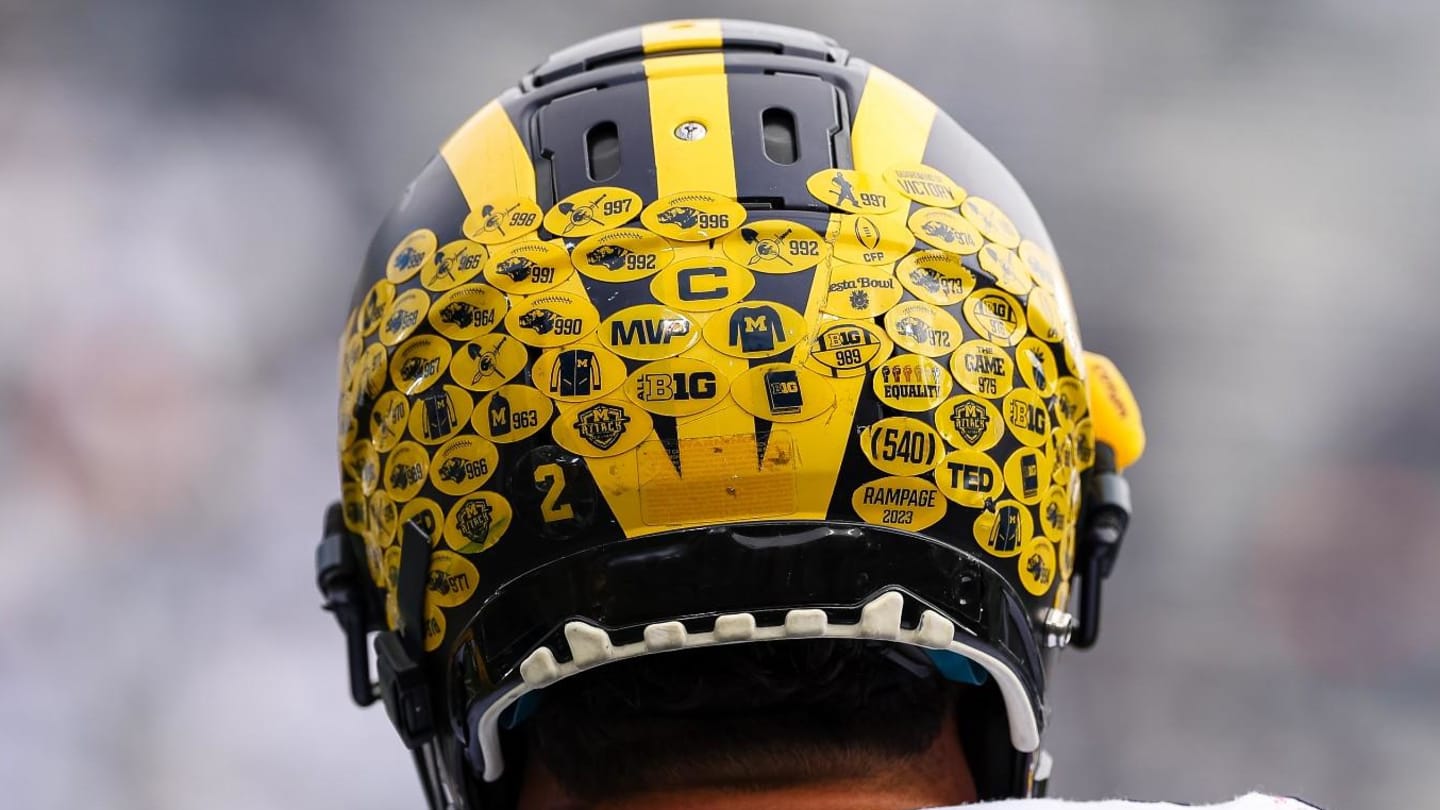The voice of Baceprot: From the Indonesian village to the Glastonbury stage

When three Indonesian teenage girls formed a metal band ten years ago to sing about gender equality and peace over bone-crunching guitar and drum music, they could hardly have dreamed that one day they would play at Glastonbury.
But a decade later, the three Muslim women of Voice of Baceprot will this week become the first band from Indonesia to perform at the world-famous festival in the UK, which also features headline acts such as Coldplay and Dua Lipa.
Their set will mark the latest high point in a wild career that has seen Firda Kurnia (guitar and vocals), Widi Rahmawati (bass) and Euis Siti Aisah (drums) gain a huge fan base while challenging gender stereotypes in male-dominated Indonesian society.
“To be honest, Glastonbury is not on our wish list because we feel it is too ambitious a dream,” Euis, 24, told Agence France-Presse (AFP).
“(I’m) half in disbelief. That’s why we keep checking to see if it’s the official Glastonbury or if someone’s playing a prank on us.”
The Voice of Baceprot emerged from humble beginnings in a village near the West Javanese city of Garut.
They won fans with their wild covers of “Rage Against the Machine” – the word “baceprot” means “loud” in Sundanese, a traditional Indonesian language – and also with their own material.
Then came greater international attention, including praise from some superstars. Red Hot Chilli Peppers bassist Flea once tweeted that he was “so down with Voice of Baceprot.”
Although the band has previously played in the US and Europe – including at the famous metal festival Wacken in Germany – there is great nervousness ahead of Glastonbury.
“Hopefully my nervousness will be a reminder for me to be better prepared,” Euis said.
Dream trip Indonesia
Voice of Baceprot has remained true to its convictions and responds with its music.
Their biggest hit – “God, Allow Me (Please) to Play Music” – has been played millions of times on YouTube and Spotify.
The band has also written songs about climate change and women’s rights.
“We create songs based on what we see, hear, read and experience,” said Firda.
The group’s rise came with a danger they hadn’t anticipated: “obsessed” fans curious about every aspect of their lives.
Some have even come to their homes to try to get to know them.
“We think, ‘Okay, maybe this is one of the risks of this job.’ Our families are sometimes confused,” says 24-year-old Firda.
After its formation in 2014, Voice of Baceprot played at small festivals in West Java, one of the most conservative provinces in Indonesia.
They later moved to the capital Jakarta and also played online concerts during the COVID-19 pandemic.
They have now returned to their hometown, where they are setting up their own studio.
Widi said the band had received “many” offers to play abroad.
But as they prepare for the biggest show of their lives at the famous Worthy Farm in southwest England, Voice of Baceprot says one of their dreams is rooted at home.
“We really want to tour Indonesia,” says Widi. “But we haven’t had the chance yet.”



